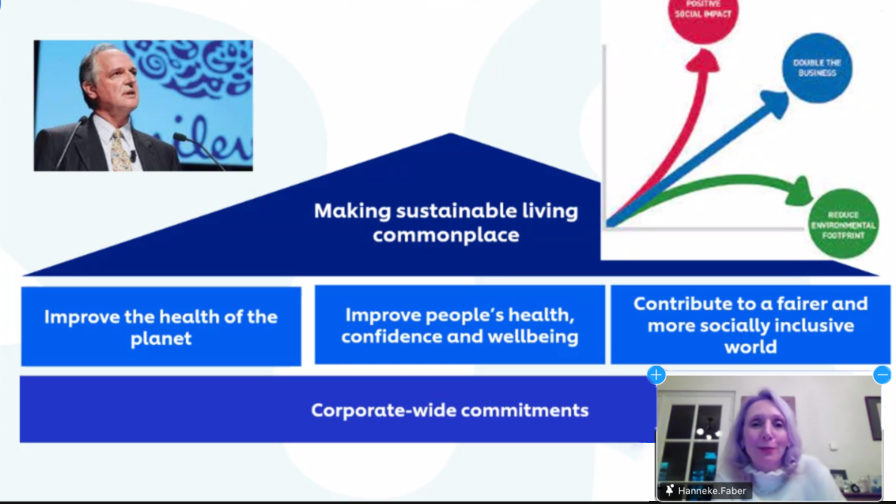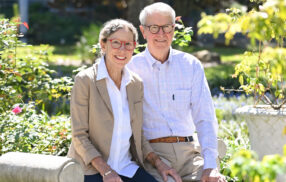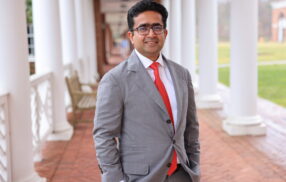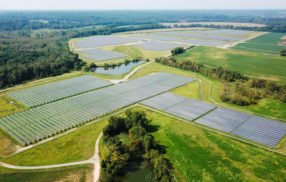
Unpacking the Good Business of Sustainability at Unilever
By Dave Hendrick
When the global consumer products giant Unilever kicked off new sustainability efforts in 2010, the company approached its goals with the business case for sustainability front of mind.
Speaking to University of Virginia Darden School of Business Executive MBA students on 10 January, Unilever President Hanneke Faber said the contention — which she described as far from a certainty — was that a more sustainable business would “grow faster, cost less and have less risk.” Moreover, a company with clearly defined sustainable values would be more trusted by its range of stakeholders, including customers, employees and federal entities.
The company set out public commitments with a focus on “decoupling growth from environmental impact,” Faber said, with specific commitments related to improving health and well-being, reducing environmental impact and enhancing the livelihood for those working with the company.
“By putting these commitments out in the public domains it created much needed pressure internally to go and deliver,” said Faber, who leads the company’s foods and refreshment division. “And it made employees realize we were serious.”
Faber spoke in Professor Toni Irving’s class, “ESG Strategies to Create Competitive Advantage from Wall Street to Main Street.” Students in the course had recently read a case on corporate sustainability at Unilever co-written by Professor Sankaran Venkataraman.
Taking stock of the 10-year plan in 2020, Faber said the company did not meet all of its goals. Unilever is still working toward being 100 percent “deforestation-free,” for instance, but in general the company’s hypothesis of good business stemming from doing good played out, with product growth alongside cost and risk reduction and stronger talent across the enterprise.
“We strengthened our competitive position with investors, consumers, employees and sustainability [organizations],” said Faber.
The explicit sustainability commitments from 2020 have been built upon with the company’s 2030 goals, which Faber said involved a shift to sustainability as part of an integrated business strategy. Moreover, if the 2010 sustainability goals outlined the “what,” the new 2030 goals needed to drill further down into the “how.”
The moves include specific focuses on planetary health, improving personal health and contributing to a more inclusive world, with specific tactics ranging from a shift toward regenerative agriculture, ramping up meat and dairy alternatives and reskilling employees with “future-fit” skills, among scores of others promises.
The sustainability goals are intended to keep the company “stretching,” and may not all be reached, but they are rigorously tracked, and audited by accountants in the same manner as financial statements, Faber said.
For the average consumer interacting with a Unilever product at the supermarket, the shifts can be seen in the rise of products like vegan mayonnaise, Dove beauty products with recycled plastic packaging or bouillon cubes with no salt.
Faber said consumers have been shown to be hesitant to make “huge sacrifices” for the health of the planet or even themselves. To engage with the consumer, sustainable can’t mean there’s a tradeoff in quality or taste, she said.
For companies large and small interested in establishing sustainability goals, Faber advised involving business teams from the outset, which she said would ensure engagement across the enterprise from the start.
The University of Virginia Darden School of Business prepares responsible global leaders through unparalleled transformational learning experiences. Darden’s graduate degree programs (MBA, MSBA and Ph.D.) and Executive Education & Lifelong Learning programs offered by the Darden School Foundation set the stage for a lifetime of career advancement and impact. Darden’s top-ranked faculty, renowned for teaching excellence, inspires and shapes modern business leadership worldwide through research, thought leadership and business publishing. Darden has Grounds in Charlottesville, Virginia, and the Washington, D.C., area and a global community that includes 18,000 alumni in 90 countries. Darden was established in 1955 at the University of Virginia, a top public university founded by Thomas Jefferson in 1819 in Charlottesville, Virginia.
Press Contact
Molly Mitchell
Associate Director of Content Marketing and Social Media
Darden School of Business
University of Virginia
MitchellM@darden.virginia.edu






